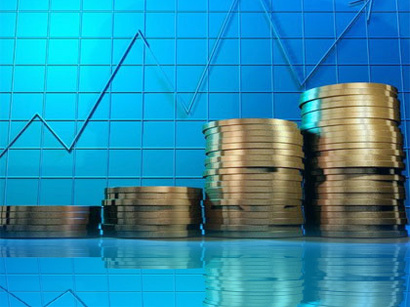Russia seen raising key rate as Ruble plunge feeds inflation

By Bloomberg
Russia's central bank will probably increase its benchmark interest rate for the fourth time this year, bringing it to the highest level since it was introduced 13 months ago, to halt a currency run that's stoking inflation.
The Bank of Russia will raise its key rate to 8.5 percent from 8 percent, according to 22 of 31 economists surveyed by Bloomberg. Two predict a move to 9 percent, with increases of a quarter-point and 75 basis points forecast by one analyst each. Five economists see no change. The central bank will announce its decision at about 1:30 p.m. in Moscow today.
Governor Elvira Nabiullina has moved to tighten policy since the crisis in Ukraine flared in March, increasing borrowing costs to cool inflation expectations and halt the largest capital outflows since the collapse of Lehman Brothers Holdings Inc. in 2008. The ruble gained the most among developing-nation currencies yesterday, rebounding from a record as speculation mounted that the central bank will raise rates.
"An increase by 50 basis points would have some impact both on inflation and the weak ruble without provoking negative consequences for industry," Artem Arkhipov, chief economist for Russia at ZAO UniCredit Bank in Moscow, said by e-mail. "Yet there are risks of a more significant rate hike as both inflation and the ruble's depreciation damage consumers and business confidence."
Ruble Bounce
Policy makers' efforts to calm the market have failed as the ruble depreciated to record lows repeatedly since September. It surged the most since at least 2003 yesterday, jumping as much as 5.1 percent against the dollar. The ruble weakened 0.5 percent by 10:18 a.m. today in Moscow.
The three-month MosPrime rate, which large Moscow banks say they charge one another, may rise 165 basis points, or 1.65 percentage point, in the next three months, according to forward-rate agreements tracked by Bloomberg. That compares with 40 basis points of increases seen on Sept. 11, before the central bank last reviewed interest rates.
The central bank juggled faster inflation and sluggish economic growth before the ruble moved to the forefront of policy concerns. The regulator, which plans to move to a free float of the ruble from 2015, intervened on the currency market in October for the first time since May, selling almost $27 billion this month, central bank data show.
Outflows, Inflation
The currency defense has sapped international reserves, bringing the stockpile to $439.1 billion, near the lowest level in four years. Capital outflows reached $85.2 billion in the nine months through September, the highest since 2008, when the exodus reached $133.6 billion.
A weaker ruble boosts prices of imports, feeding the inflation rate that was already on the rise after President Vladimir Putin retaliated in August against U.S. and European sanctions over Ukraine by restricting a range of food imports. The currency's devaluation is adding as much as 2 percentage points to inflation, Deputy Economy Minister Alexei Vedev said Oct. 27.
That won't sit well with a majority of Russians, for whom inflation is the top concern, according to a July poll published by the state-run VTsIOM research center. Price growth accelerated to 8 percent from a year earlier in September, the fastest in three years and double the regulator's medium-term target.
Free Float
The central bank may "seriously" consider raising borrowing costs if inflation expectations remain high, First Deputy Governor Sergei Shvetsov said Oct. 22. The monetary authority isn't planning to use its reserves as much as it did in 2008 and 2009, he said.
The Bank of Russia has reiterated its plan to shift to a free-floating ruble next year and introduce a formal inflation targeting regime, brushing off calls to focus on the slowest economic growth since a 2009 contraction.
There's a 70 percent chance of a recession in the next 12 months, according to the median estimate of 27 economists in a Bloomberg survey. That's the highest since Bloomberg started tracking the figure two years ago, up from 60 percent last month. The government estimates the economy will expand 1.2 percent next year after a 0.5 percent increase in 2014.
The sharp decline of the ruble and reserves losses "are likely to be of significant concern to the central bank, given related risks to financial stability as well as to inflation expectations," Clemens Grafe and Andrew Matheny, analysts at Goldman Sachs Group Inc., said in a note to clients. "This is likely to cause the central bank of Russia to enact decisive changes to its foreign-currency policy."
